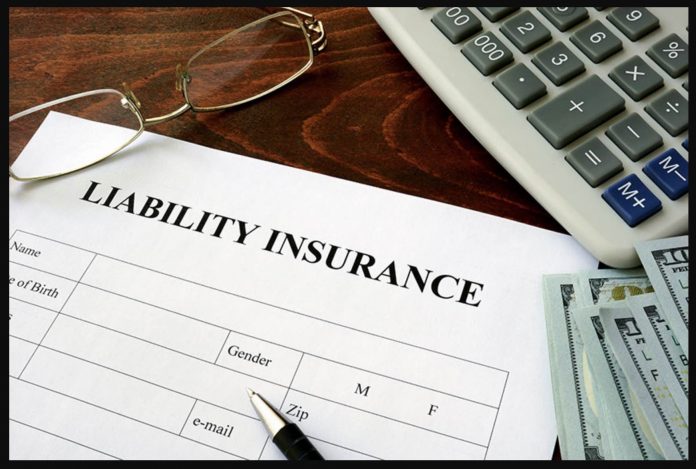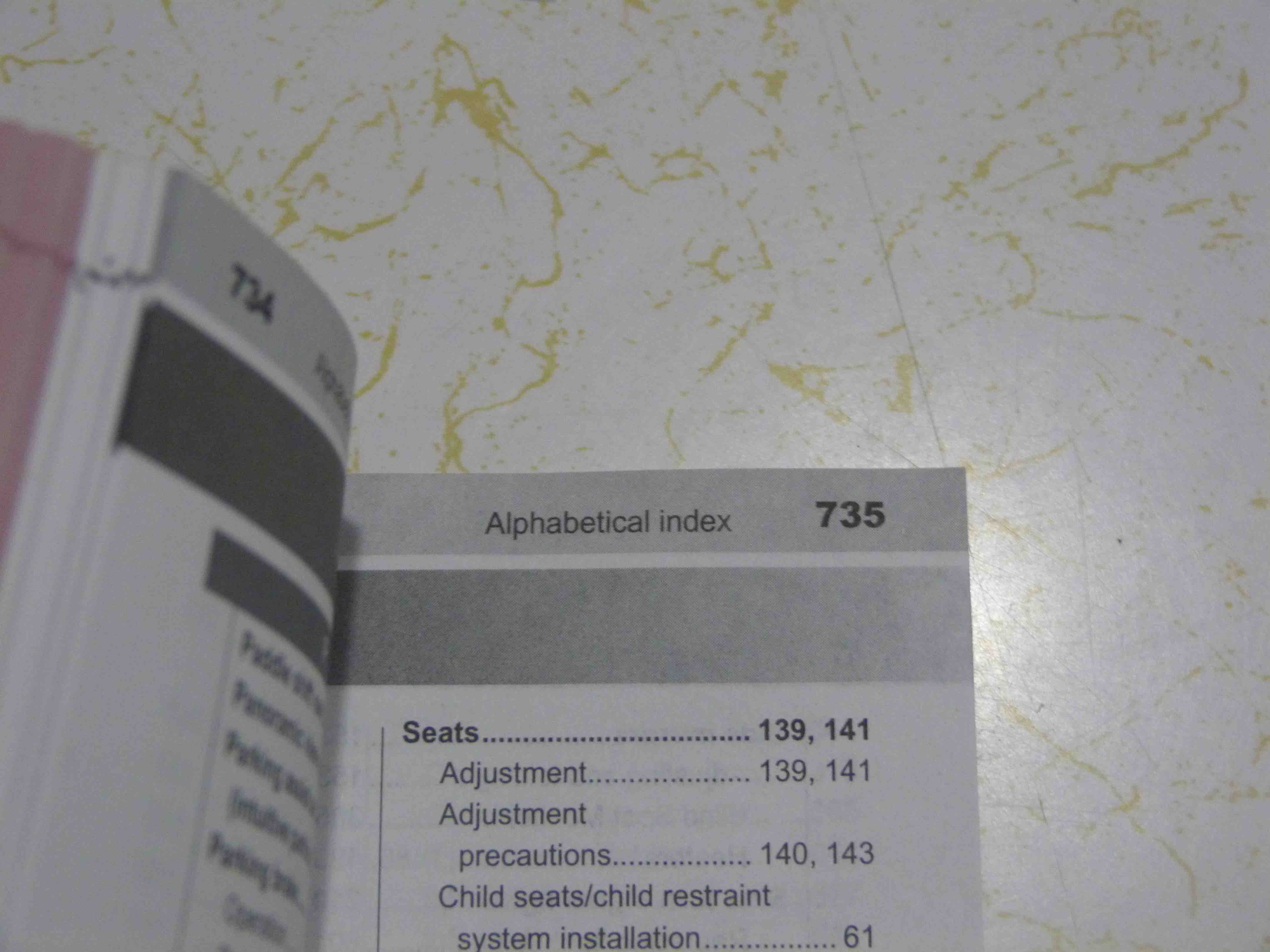Some people insist that everyone who drives ought to be required to maintain at least liability insurance, so as to protect other drivers from the possibility of their being left holding the bag if another driver – who chose not to buy it – causes an accident and cannot pay for the damage he causes.
Well, ok.
Leaving aside for the moment the underlying premise – which is that it’s ok to make people pay for damage they haven’t actually caused, because it is possible they might cause harm – and never mind a refund in the event they never actually do cause any harm.
But what about this business of requiring people to carry liability coverage for every vehicle they own? More precisely, for every vehicle that is registered – even though they can only drive one registered vehicle at a time?
First, a definition of terms – in order to be clear about what we’re discussing:
Liability insurance does not cover your car in the event it is damaged by someone else. Or by yourself. Or by an act of god, such as a hail storm that cellulite-thighs your car’s roof and hood. By choosing to forgo collision/comprehensive coverage, you choose to assume the risk that such might happen to your car as well as the cost – to you – if it actually does. And it covers the cost of any damage you might cause to someone else’s car.
Seems reasonable.
But what is reasonable about being made to pay for multiple liability coverages? You can’t be multiply liable, after all. Not unless there are multiples of you, at any rate.
The fact that you and everyone else who owns multiple vehicles is forced to pay for multiple liability coverages is pretty persuasive evidence that what this is all about is the paying rather than the possible liability.
Well, some vehicles are capable of imparting more liability than others and hence the justification for the requirement that all of them be “covered” rather than just the one driver of them. The argument is sloppy at best since a motorcycle could cause more harm than a truck – because the motorcycle is capable of much greater speed, which greatly increases the potential force it can impart in a crash – if it happens – and also because the bike can cause harm where a truck cannot, by dint of the truck not being capable of going places where a bike can, easily.
Since we are talking what-ifs and mights. Which go both ways.
But statistics! Actuarial tables!
Regardless, it is not the truck or the bike that causes the harm, if any. It is the person driving – or riding.
Who might.
And who can only drive – or ride – one vehicle at a time.
There is zero risk he might cause harm by not-driving the vehicles he cannot drive because he is driving a different vehicle. Forcing him to “cover” the ones that are parked is like forcing someone to buy shoes they cannot wear – only a lot more expensive.
Which is just point.
A reasonable policy – leaving aside the reasonableness of imposing harms before any are caused, as by forcing people to pay (serially) for harms they haven’t caused without the slightest hope of a refund, ever, for never having caused them – would be to require that the driver cover himself only, as he is the only “vehicle” that might cause harm.
The rates could reasonably be based on the driver’s record of having caused harm – as opposed to hypotheticals regarding the harms the kinds of vehicles he owns might cause . . . if he were to wreck them.
A singular liability policy’s cost could also be based on the harm the most-potentially-liable vehicle a driver owns might possibly cause, which would surely cover any liability he might impose via his driving – or riding – of the other, less-potentially liable vehicles.
If he owns a truck, and the cost of the premium he pays to cover the liability his driving of a truck might impose, then it cannot be reasonably argued the coverage he has paid to cover his truck-driving is insufficient to cover the cost of harms he might impose when he is riding his motorcycle . . . using the same arguments the multiple-mulcters use to justify forcing him to buy liability policies for both.
Except in reverse.
Which never works, of course – because reasonable considerations aren’t at issue. Just the same as arguing with someone who has been “vaccinated” that by dint of their having been “vaccinated,” your not having been “vaccinated” poses no threat to them and – accordingly – ought not to be any reasonable concern of theirs.
Assuming, of course, the reasonable premise that their health rather than your submission is what’s really in play.
Similarly, it is not liability that is in play here, as that would be covered by a single comprehensive liability policy on the driver. (Or how about a policy that returns dividends – or interest – in the event no harm is caused?)
But there would be less money in that. Just as there would be less control in not forcing everyone to get “vaccinated.”
And – per the hokey-pokey – that’s what it’s all about.
. . .
Got a question about cars, Libertarian politics – or anything else? Click on the “ask Eric” link and send ’em in!
If you like what you’ve found here please consider supporting EPautos.
We depend on you to keep the wheels turning!
Our donate button is here.
If you prefer not to use PayPal, our mailing address is:
EPautos
721 Hummingbird Lane SE
Copper Hill, VA 24079
PS: Get an EPautos magnet or sticker or coaster in return for a $20 or more one-time donation or a $10 or more monthly recurring donation. (Please be sure to tell us you want a magnet or sticker or coaster – and also, provide an address, so we know where to mail the thing!)
My eBook about car buying (new and used) is also available for your favorite price – free! Click here. If that fails, email me at [email protected] and I will send you a copy directly!












You buy insurance to protect your assets, you want an insurance company to come to the rescue.
Maybe they will, maybe they won’t.
Anybody here ever watch Barrett-Jackson auctions? Fun to watch classic cars being sold as is.
Whoddathunk a ’63 Corvette would sell for 360 grand?
A new EV Hummer was sold in March for 2.5 million dollars.
It was for charity, somebody in need will have some help somehow.
I have a 1960 Corvette with an aluminum body. The parts are still on the parts tree.
It’s a toy model, but I think I’ll take it to a Barrett-Jackson auction and see how it sells. har
Interesting thing here in New Hampshire, where there is no mandated car insurance.
If you do cause a crash and you don’t have insurance, whether or not the other party has “uninsured motorist” coverage, you will be required to get a policy to cover just you for the next two years. So no matter what car you drive, you are the one insured.
So, Eric, what you propose is possible, but you have to crash a car in order to qualify for it. Clown world.
Hi Baxter,
Clown world, indeed! If only it were funny… .
I once rough-estimated the total I’ve been forced to pay for “coverage” and it amounts to more than I paid for my truck and my four motorcycles combined. Many people are paying $800-$1,000 annually for a single policy. It easily adds up to $30,000 or more over 25-30 years Not factoring in the money that money could have made for the person deprived of it.
Now add the cost of health insurance “coverage” over the same period. After all the other taxes.
People wonder why they feel like hamsters on a wheel that never stops turning. Even if they are frugal and hard-working.
State governments are a major culprit in the insurance scam. Each has an agency solely responsible for regulating insurance. They in fact regularly violate the Constitution by prohibiting health insurance from being sold across State lines. The excuse being “other States don’t require the same coverage we do”. Never mind they shouldn’t be deciding coverage requirements in the first place. Those same regulators also control all other insurance as well. It’s become fairly obvious there’s money in such position.
I view the problem differently and don’t understand why no almost no one approaches it this way. The better solution is to rid ourselves of liability insurance, in most cases. Why is automobile insurance basically the only type that requires me to purchase coverage for other people’s damages, save a minor exposure on homeowners?
In other words, simply allow people to purchase property damage coverage on their possessions, much like no-fault insurance. If two people are involved in an auto accident, they each obtain coverage form their own carrier. Whatever coverages you’ve purchased is what applies. No more seeking out the “other guy’s” insurance company to pay for your damages. As the old joke goes, “They’re called accidents for a reason”. Liability coverage is simply another avenue for lawyers to extract their cut.
You answered your own question James. “…avenue for lawyers to extract their cut.”. If a logical scheme for reorganizing auto insurance results in one cent less income for a shyster, anywhere, by any stretch of the leegul beegul imagination, it will be memory-holed immediately! Unleash the (bought and paid for fellow shyster politician) hounds!
They already have that. It’s called living in a no fault state, and we have to pay extra to reserve the right to collect damages.
Accident is a misnomer. They are careless violations of other people’s property rights, and the person causing the damage should be held fully accountable.
There is no such animal, in this country, as “pure no-fault. The closest you’ll come is Michigan and even here there are “loopholes” that allow those who choose to not carry collision coverage to collect up to a $1,000 for damage done to their vehicle. Also, you’re simply talking semantics, when you use the term “careless violations” to describe what is most always the “accidental” damage done to another person’s property. Much like in a number of situations, there is usually an “either/or”. In this case either they “accidentally” damaged the vehicle or did so on purpose. And in most cases, it was an accident. Finally, those who cause an accident can be held “fully accountable” for their actions by way of increased insurance premiums. There’s simply no reason why we need lawyers or the court system to adjudicate these type of claims.
Hi James,
I’ve argued for years that the fairest approach is to simply hold people responsible for harms they cause – and to leave them be if they haven’t caused any. I understand the impetus to require everyone carry insurance. The problem, I maintain, is two-fold: One, it is unjust to make someone pay for harms he hasn’t caused because he might cause them. Two, if this principle is accepted in the case of car insurance then one has implicitly accepted the same argument for requiring gun owners to carry insurance. For that matter, one has accepted – in principle – that in the case of any human action that might lead to harm caused, it is justifiable to require insurance to compensate the potential victim.
I find this both immoral and stifling in that it restricts (by discouraging) people from living out of fear of risk.
I agree with Jefferson that accepting the possibility of risk – of possible harm – is is far more preferable than accepting the absolute certainty of harm, in the form of having to pay for harms not caused (eternally) for the sake of harms that might occur and which probably never will.
It’s certainly some kind of semantics to use the term ‘accident’ to refer to the routine result of the actions of careless people who’ve been conditioned to rely on car insurance to keep them out of debt rather than taking any personal responsibilty for the harm they cause 🙄 Nah lets charge everybody! There’s no WAY the government and its corporate cronies won’t benefit from this while the little guys get regularly boned outta their property.
Indeed, Moose!
And as far as “out of debt”:
A typical person pays $1,000 annually in vehicle insurance; over 40 years of driving that is $40,000! And that’s not counting the lost opportunity cost of that $40k.
It is a stupendous sum. Many people pay a great deal more than that, too. Just for car insurance. And people wonder why they have no savings.
It’s criminal, EP.
I realized earlier how I took the covid deferral on the taxes I filed this year for the money I failed to generate last year thanks to govt, so that I can buy myself some time to work even harder this year to pay them the rest of what they say I owe them this year, next year!
So glad to be living so free in America, it’s fantastic, not a slave at all, the cognitive dissonance is soothing as long as those darn voluntaryists don’t go prodding at it 😒
Indeed, Moose –
The best course I can think of is to decouple to the extent possible – to make oneself as independent of the need to play their game as you can, as by living on as little income as you can, as by arranging your life so that you can provide the necessities of life yourself.
I sometimes think a nice RV in the middle of 100 acres in the middle of nowhere might be just the ticket for these times.
I looked up one of our vehicle policies, and the liability has the highest premium, with comprehensive ($100 deductible) close behind. This is the opposite of homeowner’s insurance, where liability is relatively dirt cheap. Collision is third ($1,000 deductible), at about 75% of the liability premium.
We’ll probably never know whether attaching liability coverage to the driver instead of the vehicle would be feasible, given that there is not a free market in any state and therefore little incentive for innovation.
One thing I know for sure is that you can’t expect any insurance company to refund your premium just because you didn’t have a claim. That is nuts. Let’s say you sell 100 annual policies on commercial drones at $200 each, so you collect $20,000. But at the end of the year none of your drone owners has had a claim, so you have to refund $20,000. How do you stay in business? If you did have some claims, it would be even worse, since most claims probably would take more than $200 to settle. You would have an underwriting loss on every claim, and would only break even on claimless policies. So even before you pay operating expenses, you’re way in the hole.
Some companies have claim-free discounts, but they cannot refund earned premium, ever.
Term life insurance works that way, where the contract sunsets and you get money back if you didn’t use it. Car (and health, etc.) insurance is a different bet where you’re being asked to pool resources hedging that most people don’t collect but realizing some will. You do sort of get money back with each policy renewal via lower rates if people in fact don’t collect at the pre-assumed rate (this happened industry-wide in 2020, for instance). Picking and choosing customers is one way an insurance company can compete by trying to attract and retain low risk customers and a good agent or broker knows how to leverage that for you with discounts.
For the most part, drone insurance can be bought by the flight. Depending on where you are flying (technically what you’re flying over) it can be as low as $15/flight hr. This basically parallels general aviation insurance, where there’s a policy that covers the airframe for damage and theft, and liability for the flight time.
Example. Correction: flight insurance for as little as $10.
https://apps.apple.com/us/app/verifly-drone-insurance/id1122080460
Last time I looked, airframe theft was at an all time high. A check in ebay shows no real life airframes for sale. Just scale models. lol!
Hi Ready,
Yes, I just picked a drone out of the air, so to speak, as an example of something that can be insured. I have my hobby drone insured with a “personal articles” policy that would pay me if I lost it. I probably should drop it as the thing is getting old and I don’t fly it much.
I think my main point stands, however. If you fly for an hour and don’t have an incident, they’re not giving you the 10 bucks back. That’s because they provided the good that you contracted for: an hour’s worth of insurance.
I’ve made this argument of I can only drive one car at a time for ages. I have come to a conclusion regarding it. It is this way because people like punishing anyone who has more than them or lives differently than them through the political process. The powers that be and their cronies take advantage of this situation.
They’ll make arguments about you loaning the cars you don’t drive to other people and how requiring insurance per motorist is unfair to people with driver’s licenses but not a vehicle and other nonsense that doesn’t apply or easily worked around. They simply want costs increased on people who either have the skills or the resources to have multiple vehicles.
Insurance: The only casino in which you bet you will fail, or die.
and hope you lose the bet. 🙂
Eric,
After making this very argument a while back on another of your articles, I have thought about it some more. How in Hell do they determine the actuarials regarding such multiple liability policies, and therefor the cost to them and the price to you? I think I figured it out. They simply determine that you are driving each of your vehicles all the time. If any small private business attempted to operate this way, it would soon find its doors closed and the owner in jail, with assets confiscated to make restitution. Get that corporate seal though, and the playing field and the rules change dramatically. After all, now you are a potential campaign contributor.
A serious contributor.
Hi John,
It seems to me the only objective criteria for establishing a risk profile is that person’s record of filing claims or having them filed against him. I get grief all the time from people who take issue with my “speeding,” my not always stopping completely at every stop sign (as when I can see there is no reason to stop – just a legal requirement) and general (egads!) use-my-own-judgment-ism.
It is dangerous, they screech!
Yeah? Then why haven’t I actually so much as scratched a fender in decades of driving as I do? Why does that objective fact carry less weight than someone else’s fear about how “dangerous” my driving is?
Some of these same Fear Bots are ferocious gun defenders (I am, too). But when I point out to them that some people are terrified of their “dangerous” guns, they get mad or go silent.
Eric,
The is the next avenue of oppression, isn’t it? If they can’t ban your firearms, they can require insurance, and that insurance can be inscrutably expensive.
Which like all gun laws, would be an infringement. I’ve always found it odd that churches are tax exempt because of the first amendment, but gun and related purchases aren’t because of the second. If I’m not mistaken, whether they are anymore or not, at one time the price of a newspaper was sales tax exempt because of the first. Of course I’ve gone off on a tangent here regarding a dead letter, and a government that is therefore criminal.
Life is a risk. Before you even roll out of bed in the morning. And a great many people enjoy taking risks. For God’s sake, there are people who jump out of perfectly good airplane. I see a problem with risk assessment being established by past incidents. How to establish the initial risk, and the price charged for a driver without any history. And you know the driver with no history is a high risk because of the lack of experience. It is curious how people can’t see parallels between their favored actions and those they don’t favor, but others do. As if only what they care about matters. I think there’s a name for avoiding this error. It’s called critical thought.
Hi John,
This is why I oppose all forms of mandatory insurance – and support mandatory restitution for actual harm caused. It’s neat, objective – inarguable. If you haven’t harmed anyone, no one has any right to make you pay them – or anyone else – a red cent. But if you do harm someone else, they have every right to collect every red cent.
Professional liability insurance (like doctors, lawyers, engineers, contractors) is insuring the person for errors and omissions not their tools. Driver liability is the same thing. You’re taking a policy based on the assessed risk of the individual.
Insurance is a hedge. Like an option, it should be used to protect you from the downside loss. You’re not required to purchase options when you buy stocks, even though most reasonably active investors have far more assets in their stock portfolio than in their garage. At some point there’s a justification for protecting your potential downside loss if a trade goes sour and that’s when you hedge.
An excellent point.
Would it not make more sense that liability insurance is tied to the person & not the car?
In fact, why wouldn’t a personal liability plan – which could cover one’s actions via vehicle, fists, or general negligence – be adequate?
But here we are, in a world where people are to be controlled & wallets be suckled on – via force – for your own good.
Our wise masters have deemed it so; since we, the peons, can’t possibly know what’s best for us. We must be made to act in the common good, for the benefit of all others in the collective.
‘Why wouldn’t a personal liability plan – which could cover one’s actions via vehicle, fists, or general negligence – be adequate?’ — Dan
‘Umbrella insurance is a type of personal liability insurance that covers claims in excess of regular homeowners, auto, or watercraft policy coverage.
‘Umbrella insurance covers not just the policyholder, but also other members of their family or household.
‘Umbrella insurance coverage covers injury to others or damage to their possessions; it doesn’t protect the policyholder’s property.’
https://www.investopedia.com/articles/personal-finance/040115/how-umbrella-insurance-works.asp
The cool thing about regulatory capture — from the insurers’ POV — is that they can have it both ways.
Tie basic coverage to individual vehicles, boats and houses … then link umbrella coverage to individuals and even households.
It doesn’t have to make sense. KA-CHING!
“The cool thing about regulatory capture — from the insurers’ POV — is that they can have it both ways.”
and there it is
I don’t know WHY this can’t be done! My AAA membership doesn’t apply to my car; it applies to whatever car I’m driving. I can use my AAA for my car, a friend’s, or even a rental; the AAA applies wo whatever car I’m operating at the time something goes wrong. That’s why I carry a membership card with me. If it can be done with AAA’s coverage, why not with liability insurance?
Most insurance covers you driving someone else’s car on and intermittent or temporary interval.
But with plenty of weasel words written in for the insurer to avoid paying for sure. Insurers sound reasonable on the surface.
Indeed, while they will cover you for driving someone else’s car, insured or not, they won’t cover you for driving your own uninsured car.
Because racketeering is more profitable for the racketeers. Imagine how expensive your AAA policy would be if you were required by law to have it. Shortly after the mandate it would turn into specific cars and increasing prices for people that rent often, etc., etc………..
Your point is idealistic for a free market. In the collectivist world we live in, the idea is outrageous.
Shut the door on your box and step back in line peasant.
Marky,
Perhaps the explanation is that your AAA membership basically covers emergency roadside service. It does not provide comp or liability unless you pay much more to add those. And the maximum cost of a roadside service event is much less than that of a potential liability claim.